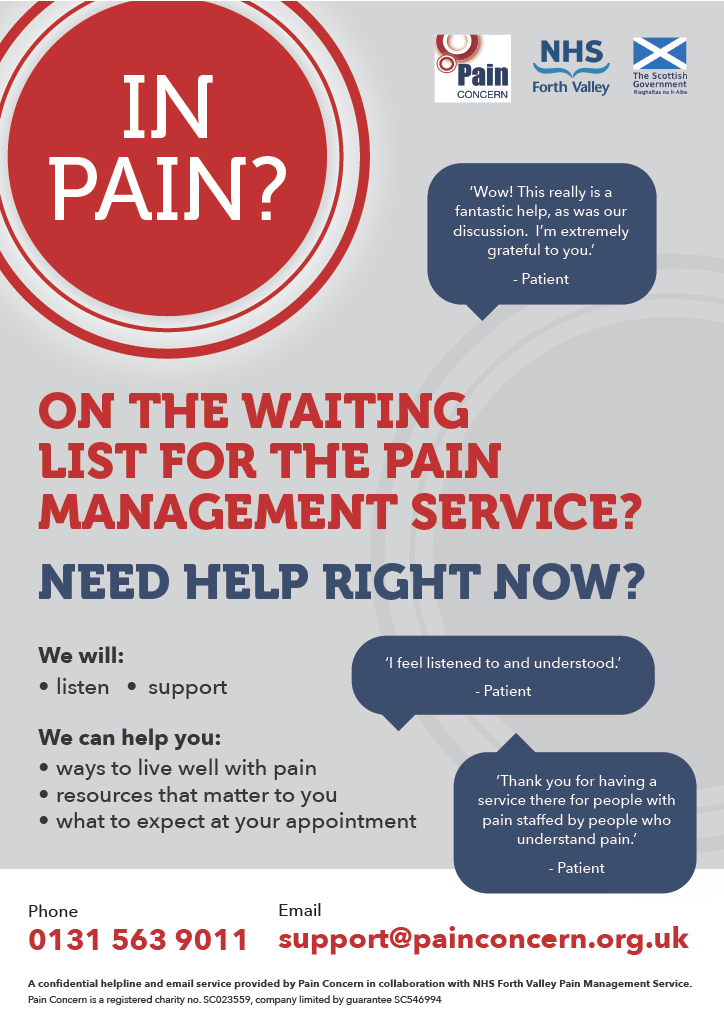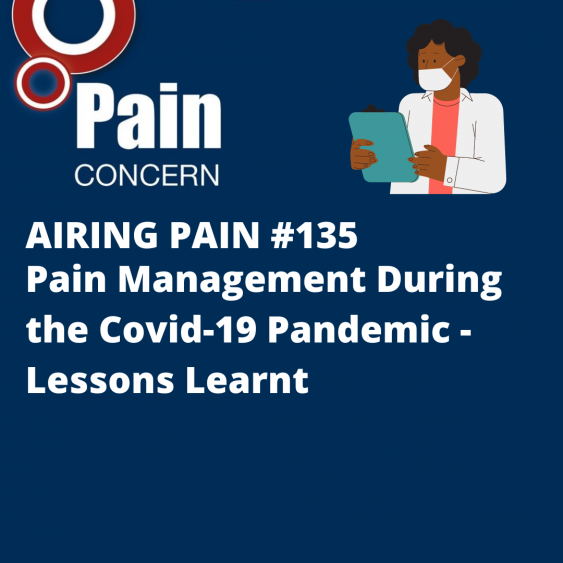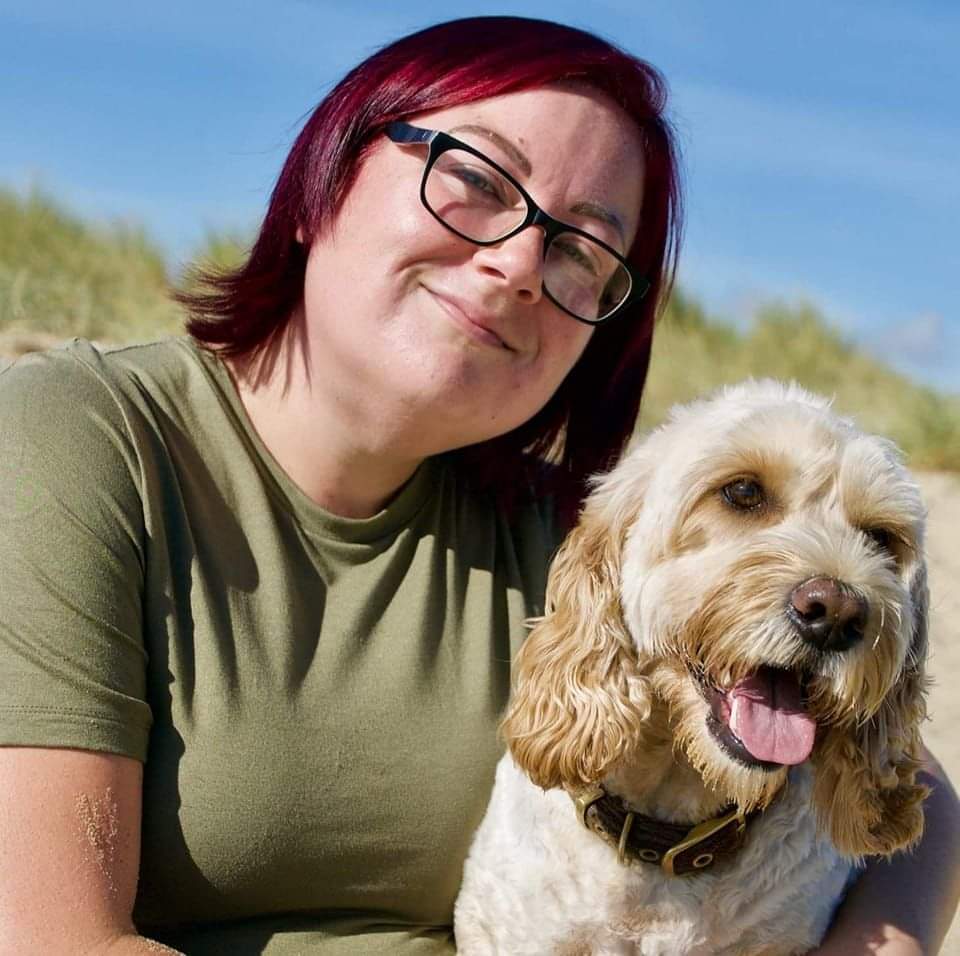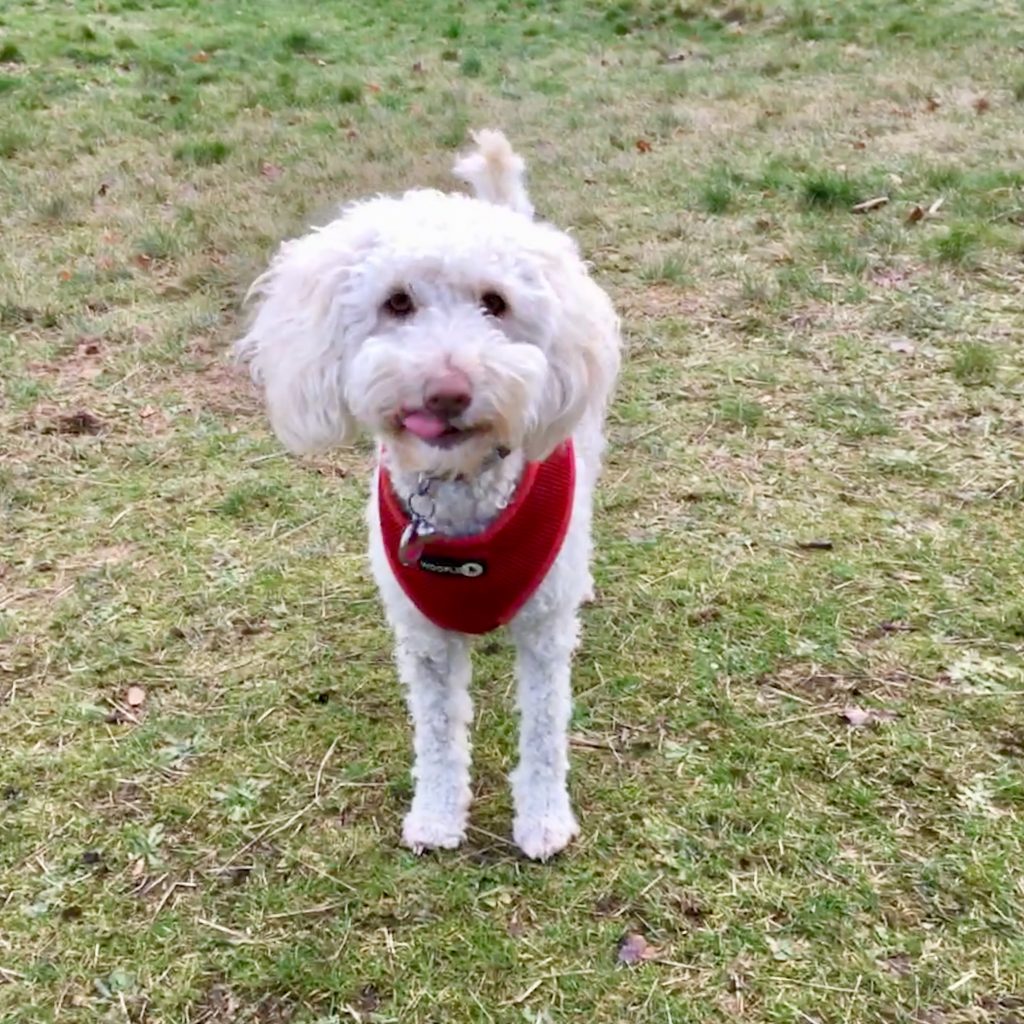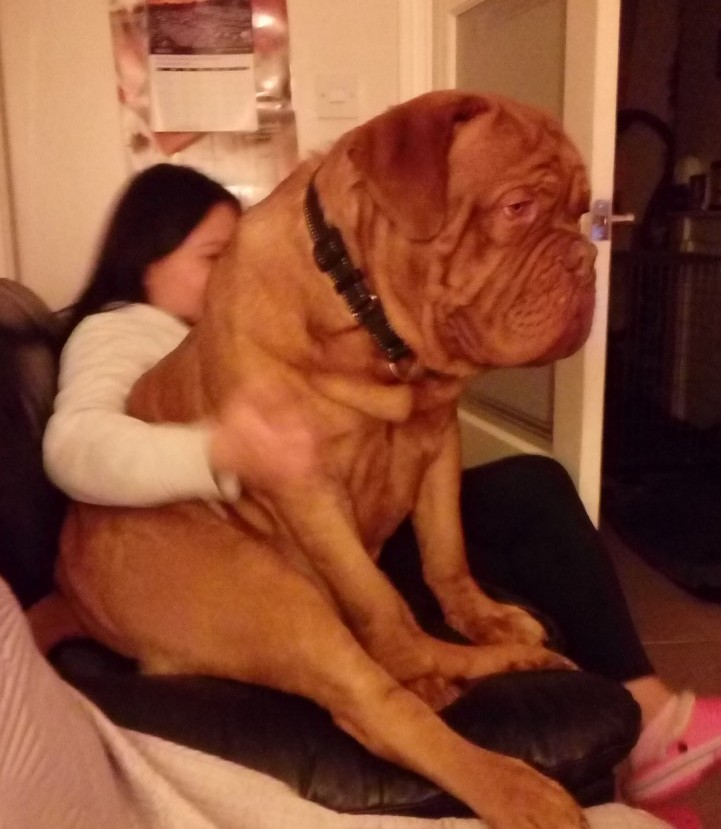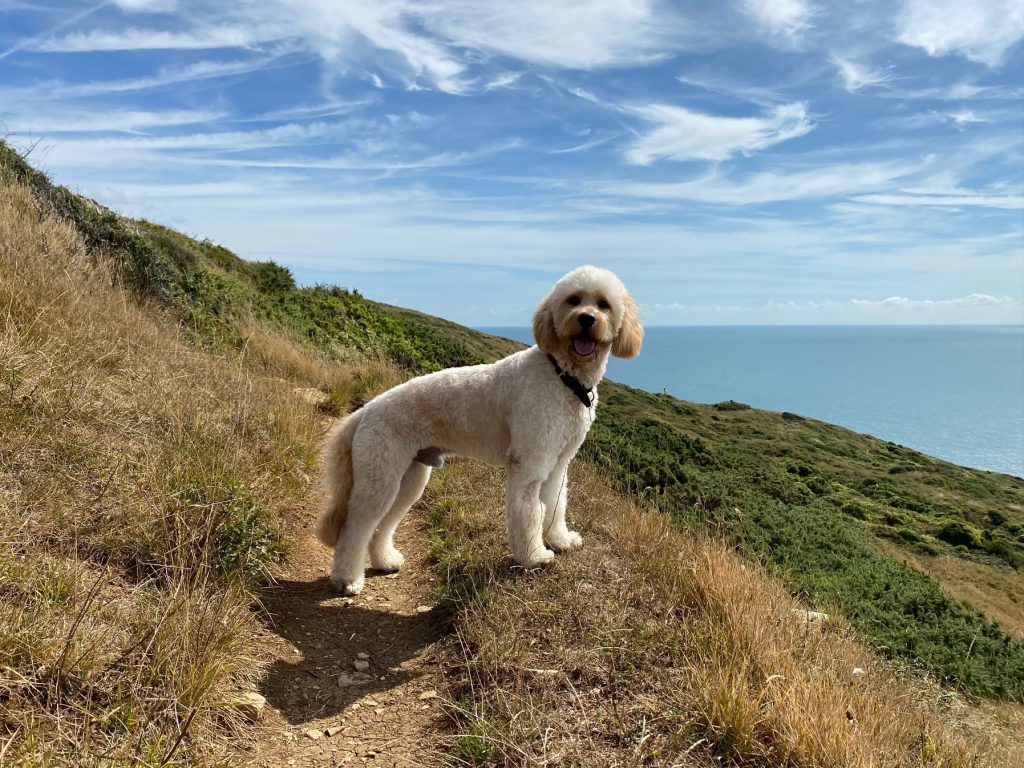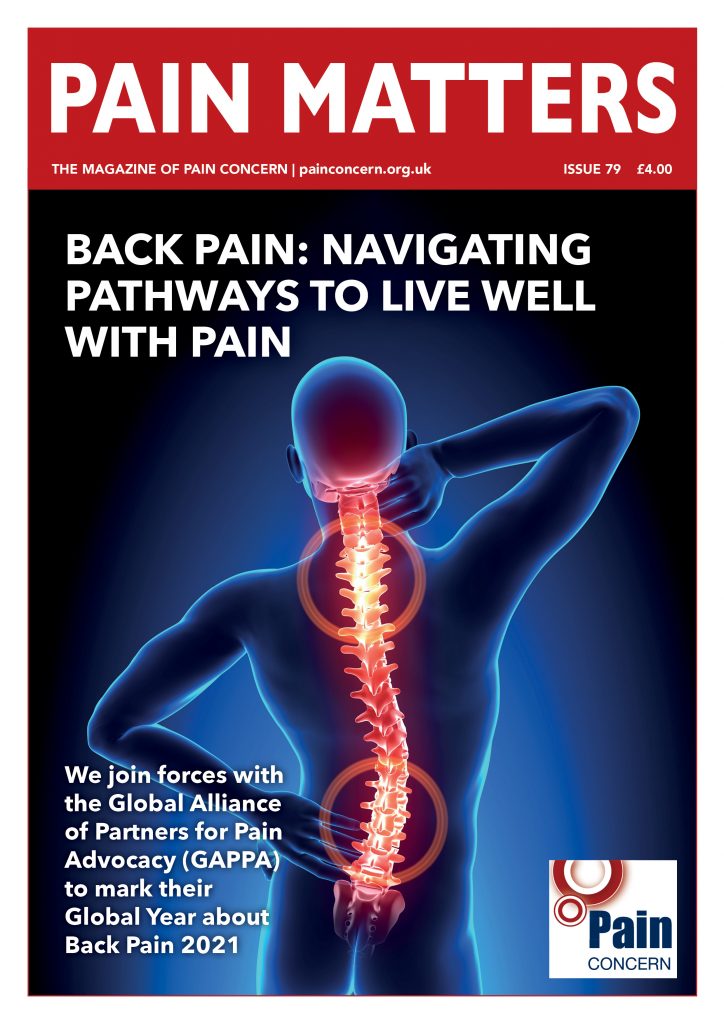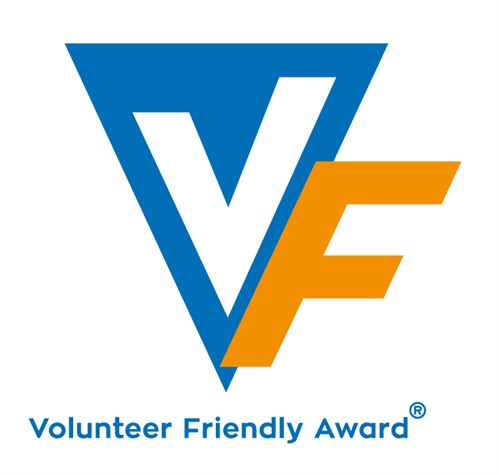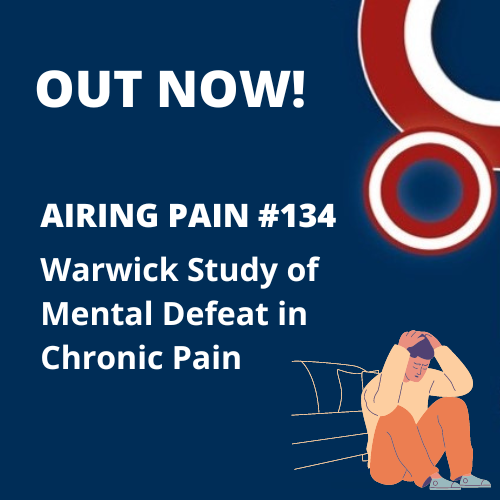First Broadcast 1st December 2022
What is mental defeat and does it have an impact on the experiences of those living with pain?
In this edition of Airing Pain, Paul Evans interviews the team at the Warwick Study of Mental Defeat in Chronic Pain (WITHIN Project), and research participants, as well as taking part in the study as a participant himself.
The study, which runs until May 2023, is investigating how mental defeat can influence pain sensation, sleep patterns, social activity, physical activity, and the general health of individuals who have chronic pain.
Mental defeat is defined as the perceived loss of autonomy in the face of uncontrollable, traumatic events. In the context of chronic pain, this can be explained as a loss of identity and self in relation to repeated episodes of pain.
Paul talks to the team about their experimental, lab-based study and the sleep-tracking survey, then undergoes the lab experiment himself. Afterward, he discusses how he found it and the possible outcomes of the research. He also interviews other participants on their experiences.
Research into mental defeat is in its early stages. It is hoped that the WITHIN Project will generate important information to help us further understand the influence that mental defeat has on distress and disability in chronic pain patients. This is essential listening for anyone wanting to know more about the research process or wanting to participate.
Issues covered in this programme include: Mental Defeat, pain research, insomnia, psychological effects of pain, chronic pain, patient perspective, acceptance and commitment therapy, research participation, pain thresholds.
Paul Evans: This is Airing Pain, a programme brought to you by Pain Concern, the UK charity providing information and support for those of us living with pain, our family and supporters, and the health professionals who care for us. I’m Paul Evans. And this edition of Airing Pain is funded by the Medical Research Council.
Nicole Tang: Mental defeat is a rather abstract concept. It is a concept that has been developed in the field of depression, post-traumatic stress disorder and even in the field of suicidality. It is only when I have spoken to a large number of pain patients themselves, when I ask them about – you know – how they feel, how they interpret their current situation, they talk to me about something – pain being the enemy. That they have to face it every day and they talk about how defeating it is, especially for their mind, and they talk about how the pain has taken over, how they feel they are belittled by the pain, and sometimes they even think that they don’t feel like they are human beings anymore, they feel like they are just a walking sort of ‘blob of pain’ and that is a very remarkable quote from one of the participants of our studies.
Evans: Nicole Tang is Professor of Clinical and Health Psychology at the University of Warwick. She is Principal Investigator of the WITHIN Project, that is the Warwick Study of Mental Defeat in Chronic pain. The study’s investigating how mental defeat can influence pain, sleep, social activity, physical activity, and general health and well-being, in people who have chronic pain. But that word ‘defeat’ ….?
Tang: By ‘defeat’ we try to use that to describe the deeper psychological impact of living day-to-day in battle with pain. When the pain is winning you will get to feel defeated, you will get to feel that you are not winning the battle, or the pain is taking over.
Evans: So, you are actually talking about a battle against the pain?
Tang: In a way, I mean, this is what we have heard from qualitative interviews with a large number of chronic pain patients when we talk to them about the psychological experience, how they deal with pain on a day-to-day basis. This is usually something that we get – particularly from those individuals who are most affected by chronic pain.
Evans: Now you’ve just been talking to the International Association for the Study of Pain Conference, and you showed them a series of images of how pain might feel. One of the images you showed was of a person sitting on the floor and knees up to their chest with flames all around them. That is total helplessness, that really, really shows what it’s like and how dark the tunnel is.
Tang: You can use the word helplessness to describe it, but I think mental defeat goes beyond just helplessness. If you think about defeat as something that could help to describe the deeper impact of chronic pain it has something to do with people’s self-identity – who they are, you know – what pain has made them become. Sometimes you will hear people say, ‘Wow I am not myself anymore, I used to run marathons but now I can’t even walk a mile.’ They would feel like they have been changed by the pain forever, they have been reduced. So, there is some element about that defeat concept that is not represented by just helplessness, and it goes beyond that.
Evans: The way you are saying it, it is final; defeat is final.
Tang: Well, I hope that is not the case because our current research is to find out a little more about that experience, to see how changeable it is over time and what we could potentially do to change that, because we believe that it could potentially be something that we could target in intervention, to help people to make a slightly different interpretation of their situation, because we thought that it is based on how people interpret their current situation in relation to the struggle with chronic pain. If we manage to change that perspective, there is actually hope somewhere that we can help people to see the light at the end of the tunnel.
Evans: Perhaps I wasn’t right to say it is final, but the perception may be final.
Tang: That’s what we hope will be the case and that’s what we are striving to understand. But unfortunately, we have also found out that there is a link between the sense of perception of defeat. If it is coming across as final to the person it could potentially increase the risk of suicide in this clinical population and so that’s why I cannot generalise whether or not it is final to such an individual. But we certainly hope that we can work towards understanding the concept and, if it is something that feels quite final for a fleeting moment, or for a short period of time and we can change that, then that is totally something that we need to do in the development of intervention – to not overlook, you know, how much pain could potentially affect a person’s self-identity and how they see themselves, their value in the world. To help them to see, you know, a positive side, you know, the future that can be changed, they can be an agent of change for themselves even though pain medication may not be helpful, even though there may not be an immediate cure for the chronic pain.
Evans: Nicole Tang. So, I am just thinking of the chicken and egg scenario. Which comes first? Defeat leading to pain or pain leading to defeat?
Jenna Gillett is a PhD student working with Professor Tang on the WITHIN mental defeat study.
Jenna Gillett: This is the golden question. The research in terms of defeat is actually fairly new, specifically to chronic pain anyway, in that we are … that’s part of what we are doing within the study – we are trying to track defeat over time to see does it change? Is it the same? Do certain things maybe increase defeat? Is it related to certain other factors, such as self-compassion, pain, self-efficacy?
We are looking at, sort of, how does defeat manifest in people? When you talk about it with other clinicians, when you talk about it with people who live with pain, lots of people go, ‘Yes I know exactly what you are talking about, I have seen this in my clinic, I have seen this on the wards, I have seen this in my friends when I go to my Fibromyalgia Support Group’. Lots of people know what you are talking about in terms of, ‘I can relate to the experience’, but not many people go, ‘Oh, so that’s called mental defeat is it?’. So, part of what we are doing is, I guess, getting the word out that, in terms of psychological variables, in particular, this is something worth looking at. It’s something that is really important in terms of helping people live well with pain – and mental defeat could be a really interesting and quite important variable that we need to be paying more attention to.
We have a Sleep and Pain lab so, as the name implies, we are looking at the sort of people who have issues with their sleep and also people who experience chronic pain. Typically, what you find is that people who experience chronic pain also have worse sleep. They might struggle to fall asleep; they might struggle to stay asleep. A lot of them will meet the clinical cut-off for diagnosable insomnia. So, this is again something that Professor Nicole Tang has paved the way for in this kind of area of research.
OK, so we are looking at people’s pain outcomes, but we also need to look at their sleep as well because this is a massive area of health that is really, really important to the overall experience and, again, living well with pain. So, the sleep tracking study fits in here. It’s a specific branch of the study. It has unfortunately closed to testing now, but we are so grateful for the people that did do it because the data is going to be so rich, and we are going to be able to really learn a lot from this particular design of this study.
Evans: That’s Jenna Gillett. [Now over to] Nicole Tang.
Tang: Sleep could potentially be one of the many pathways that will change the way in how you perceive pain. And change your mood because if you are not sleeping well you will wake up grumpy, you will wake up feeling irritated, tired, not feeling that you are ready to face the day. And so, it has a huge impact on pain management and so we felt that sleep could potentially be one of the pathways. And also, sleep is not detached from what we do on a day-to-day basis so we have a tracker where we can use that to monitor both sleep and physical activity during the day. So, we are going to look at the participants’ data to see how perception of defeat is linked to these day-to-day processes and then peoples’ pain experiences and outcomes.
Evans: Well one thing I would say is that after a poor night’s sleep, I certainly ache a lot more.
Tang: When people are sleeping better their physical activity level will go up because they feel better, they feel like their body is ready to take on the day and this is something that we have seen in our own research data where, without any intervention, following a night of good quality sleep people spontaneously would do more the next day. And so that’s the magical quality of a good night’s sleep. It is a daily therapy for people, it refreshes you, it helps you to face the next day and so sleep is really important.
Evans: But how in your study, using sleep and the pain experiment, how do these two things link in together?
Tang: So, they will be treated separately because we have three elements, like three branches of the whole programme of study so we are using a different approach . For the experiment we will be more focused on looking at the activation of mental defeat and its direct effect on, you know, your pain rating and pain anticipation, etc. For the other study – where we are testing the association between defeat, sleep, physical activity, and pain – we take it out of the laboratory in people’s day-to-day life, in their usual environment to see how the different pathways translate the sense of defeat into what we do and what we experience during the day. So, they are complementing each other but the data will be analysed separately.
But you are right when you said earlier that when you didn’t have a good night’s sleep you tend to ache more during the day and it is exactly what we found in experimental research when we introduce sleep deprivation in healthy, pain-free volunteers and even for those young adults with no pain whatsoever, if we take away the sleep they tend to complain about pain a little bit more and when we do testing they feel the pain more. So that is the interesting thing about doing research, you can actually see the association really clearly.
What we understand these days is that when the sleep disturbance has been here for some time it takes on a different shape and form so the mechanisms that maintain the insomnia would be slightly different from the mechanisms that trigger the insomnia, in the first place. And because of that change, the more we understand these days is that some of the cognitive behavioural treatments that work for people with insomnia in itself actually works really well for people experiencing pain and insomnia at the same time. And so, potentially, we can use a combination of drug and non-drug treatment or even just non-drug treatment to help people to sleep better.
Evans: Nicole Tang. Jenna Gillett again.
Gillett: We started this study right before Covid hit and that was a huge learning curve for all of us, I think, because nobody in the world knew what was going on, knew what was going to happen and we had to really sort of ‘adapt or die’ to the situation so to start with this study originally had a longitudinal questionnaire …
Evans: So, just explain to me, what do you mean by longitudinal?
Gillett: Longitudinal is ‘across time’, so with this longitudinal questionnaire we had three time points. So, we did a baseline timepoint, we did one six months later and then we did one another six months later, so overall you’ve got three time points across 12 months of data that you can then look at and you can track different factors, different things, mental defeat across those time points. So, you then get a snapshot of a 12-month period, if you like, of what’s kind of going on and you’re looking for trends and patterns in the data.
So, with Covid and us running a longitudinal sleep-tracking study we had to really adjust things in order to be able to run it from the comfort of people’s own homes. Now, whilst this was something that was borne out of a pandemic, which is obviously quite a negative thing that the world went through, it’s actually resulted in a real positive thing and the response that we got from the people who wanted to take part in this study was just overwhelming. In the end, we had over 200 people which was just really incredible that, even with everything going on during Covid, the aftermath of Covid, people were really wanting to take part in this research which was just really nice and is why we do it, so it was really nice to have that kind of feedback as well.
Evans: Jenna Gillett. One of the participants who took part in both the sleep and lab-based study is Lauren Pulsford.
Lauren Pulsford: I have rheumatoid arthritis, currently only diagnosed as being in my right knee, so basically my chronic pain is any movement of the joint – time on my feet, especially, is just always constantly painful.
Evans: What did you understand about mental defeat before taking part in this programme?
Pulsford: Some days you just feel like … well it’s that … essentially that depression feeling isn’t it of ‘what’s the point? If I’m going to feel like this every day for the rest of my life there’s nothing that’s going to make me feel better, there’s nothing that’s going to make me normal’. That’s essentially what I understood it as, as something very similar to depression.
Evans: Do you understand the principle of victory? Feeling victorious with your pain?
Pulsford: To me that would be, I suppose, situations where you work through it, you beat the pain, you think this is something that I can’t possibly do because I’m going to be in so much pain but then you go and do it anyway. So, for instance, for me, you know, that would be something where I was stood up and on my feet for hours at a time without feeling like I was going to have a breakdown because of the pain.
Evans: Why did you take part in the mental defeat research programme?
Pulsford: Just for … I’m only in my 30s, I shouldn’t be sat at home doing nothing, day in, day out, the rest of my life, because I’m constantly in pain. So, I sort of thought, this sounds like something that sounds like me. Somebody with chronic pain and feeling defeated because of that pain and it seemed like a no-brainer to help do some research in the hope that it can help people.
Evans: That was Lauren Pulsford who took part in the study. The sleep part is now closed but the lab-based part will remain open until May 2023, and the team need as many people as possible between the ages of 18 and 65 to volunteer. I’ll give contact details later, but I am within that age group, so I did volunteer. But for reasons of confidentiality and validity, we decided to separate my involvement as a participant from that of making this edition of Airing Pain. So, the day before meeting the rest of the team to record this podcast, I met Research Fellow, Kristy Themelis, at the University of Warwick Pain and Sleep Laboratory.
Kristy Themelis: The session today will take about two- to-two and a half hours. We’ll start off with just setting up the heart-rate monitor. Are there any questions, so far, that you might have?
Evans: I’m fairly nervous. Is that normal?
Themelis: Yes that’s normal. There’s a lot to take in and it’s maybe a new experience. Is there anything that you are particularly nervous about today?
Evans: Opening old wounds.
Themelis: OK, so talking about some of these experiences? Yeah, and it can be tricky to talk about some of these things. It can come with some strong emotions. At any point, if you would like a break, just let me know and we can stop it or have a pause. For now, I’ll just begin.
Evans: Right. I’m all yours.
Themelis: Right, so this is a heart-rate monitor. It’s a chest strap …. [fades away]
Evans: Kristy, we met yesterday because I have taken part in the mental defeat study. The boot is on the other foot now. So, what we went through were three statements from me. Looking back at a time when I felt defeated, which I take as being the lowest I’ve felt, another time when I felt victorious of my pain, i.e., feeling as if this is fantastic and everything is sorted, and then just almost like a control ‘how do I feel normally’.
Themelis: Yeah.
Evans: You put them into three sealed envelopes, one, two and three, and gave me a random number of which envelope to open without you seeing it, so you know nothing about … no prejudgement whatsoever.
Themelis: [back to the research interview]
OK. So that brings us to the next bit, which is where I will ask you a bit more about your experiences. We call it a thought-catching exercise where the aim is to identify some memorable moments in your life, where you either felt defeated, victorious or neutral in relation to your pain. So, what do I mean by that? By defeat, I mean disabling and negative thoughts about yourself in relation to your pain, victorious would be a strengthening, a positive thought about yourself in relation to your pain and neutral would be everyday and mundane thoughts about yourself. They are all very personal experiences, so there’s no right or wrong answer, and the thoughts and memories, which I hope you will recall, may come with some strong emotions, because they are important to you and represent who you are or who you are yet to become. So, is this something that you can relate to, something that you think … [fade away]
Evans: I found the process quite emotional – looking at the bad times – and completely the opposite – looking at the good times. Actually, the average times – I don’t know what I felt. Is this normal? I mean really getting people to almost dredge through how bad they have felt?
Themelis: Yes, so we are asking … in particular the defeating one … we are asking about very personal experiences. It often relates to a time where they felt very low. It can be quite difficult to talk about that or think about that. And it may therefore come with strong emotions, and we want to create a safe space where people are able to share some of these experiences.
Evans: We will return to my time in the lab in just a moment but, I want to pick up on something Nicole Tang said about research into the relationship between mental defeat and PTSD, or post-traumatic stress disorder.
Tang: What we have come to understand is that for those people who have experienced torture, a sexual or physical assault, if they did experience a high level of mental defeat they are also the people who are more likely to develop greater PTSD symptoms or, you know, poorer response to treatment in the future. And you can imagine the link between all these physical assaults and torture experiences with the sense of pain. It is almost like the physical tracker of that sense of threat to your personal integrity, for your identity and so there is an element of association between chronic pain and PTSD in that sense. And also from research, we know that there is a high level of comorbidity between chronic pain and PTSD. For example, if the pain developed as a result of an accident you could experience both at the same time, or if it is linked to a trauma, you can experience both PTSD and pain at the same time and pain being the trigger of memories of what happened in the past.
We know that there is an association between high level of mental defeat and high level of distress and disability among people with chronic pain. But we don’t understand what would happen when that sense of defeat is strong and activated. For example, will it affect your pain experience in itself, so when you are experiencing thoughts of, you know, you being reduced by the pain, you being someone defeated by the pain, would that affect your pain experience? This is something that we would like to test out in a more controlled experimental setting.
What we understand from our previous research is that it would definitely change your mood, it would change the way how you focus your attention. It will also change the way how you anticipate pain. But this time, we want to understand whether or not it will actually change your pain experience. So that’s why we are doing testing in a laboratory.
The other thing that we are doing is that we are trying to find out, over a longer period of time, whether or not that sense of defeat would change naturally or whether or not it would change in response to intervention. So, we are doing a longitudinal study where we re-contact our participants who have completed a survey for us, at six months and twelve months, so that we find out over time how people will be reporting in terms of the level of mental defeat and also the level of functioning. So, we are interested in, you know, the association between the sense of defeat and the functioning quality of life.
Evans: Nicole Tang.
Well, could there be another association with mental defeat? Acceptance and Commitment Therapy (ACT) is a recognised approach for the management of chronic pain.
Jenna Gillett.
Gillett: Yeah, it’s very interesting. Obviously, with Acceptance and Commitment Therapy, there’s a whole host of research that, you know, says, this is a brilliant sort of infrastructure and technique that we can use with people who live with pain and, as the name implies, Acceptance and Commitment Therapy, you are working with someone to help them accept where they are. And that’s might not be where they necessarily want to be, but it’s about accepting that this is where you are and that’s OK. And it’s sort of giving the individual back a sense of power, if you like. So, in terms of where defeat might fit in with that, it could be potentially down the road that maybe Acceptance and Commitment Therapy could be applied to people who experience mental defeat. We don’t know. The research is quite early on in terms of where we are at with it, but acceptance is definitely something that’s quite important, and I think would heavily feature in relation to people who experience defeat.
Evans: Jenna Gillett. Back to the lab with Kristy Themelis.
Themelis: This is where we have got our equipment when we’ve had people come in and have had sleep studies. We would have monitors connected and now this is where we do most of our testing. There are three tests in total. So, this is called an algometer and it has a little probe on the end and all it does is it measures the amount of resistance against that probe. So, I’ll place it on your hand in this case and then very slowly start to increase pressure. And I want you to say ‘Stop’ the moment it becomes painful. And I’ll remove the probe straight away.
Evans: So, this isn’t a macho thing?!
Themelis: Exactly [they both laugh] it’s not about how long you can last. So that’s a completely different test, and something that we also wouldn’t get past Ethics [laughs]. No, this is that very first moment and we call that a Pain Pressure Threshold. So, I will count down three, two, one, start and then I’ll start to apply pressure, so I want you to say ‘Stop’ the first moment it becomes painful. Are you ready? In three, two, one … [silence and a short pause]
Evans: Stop.
Themelis: OK, so behind you, on that cupboard, there’s a rating scale, zero to a hundred. I would ask you to rate that pressure pain. Zero being no pain at all to a hundred being worst pain imaginable.
Evans: I’d say it was a three.
Themelis: So, the second test is over here and it’s using this bath of water at core temperature, and, in a moment, I will ask you to place your hand inside. And then remove it as soon as it becomes painful.
And then, yes, take it out as soon as it becomes … right. So how much would you rate that? Zero to a hundred?
Evans: Zero to a hundred? I would say not far off sixty.
Themelis: Sixty? Are you happy to continue? Yes? So, the third one is actually a combination of the two, so this time I will ask you again to put your right hand inside. What I will do is apply pressure on your left shoulder, on there, and I want you to say ‘Stop’ the first moment the pressure becomes painful.
Evans: The pressure on my shoulder?
Themelis: On your shoulder, yes. So, it’s not the water, it’s when that pressure becomes painful. Now with the hand that goes in the water, try to keep it in as long as possible. If you have to remove it, just take it out and put it back in until the pressure is ceased. Three, two, one – go … [fade away]
Evans: To recruit participants during lockdown, the team used social media platforms of various organisations and charities supporting people with chronic pain, including Pain Concern. Successful to a point, but there were some anomalies. Paige Karadag is the Research Assistant with the WITHIN mental defeat programme.
Paige Karadag: Jenna was actually the one to identify that there were some responses that didn’t quite look human. This could have gone unnoticed if we weren’t so diligent in checking. Each time a person screened we would manually read their responses. It’s not really an automated computer that does that, it’s us that’s looking into their responses. Are they eligible?
But you have to think that if we are using social media and you get 50 responses come through, you know, overnight, that is a lot to check. At the time there was kind of an influx of 100 or 200 responses overnight and at first, we thought, ‘Wow, we’ve been really successful; we’ve clearly hit the jackpot and reached the right demographic here’. But then, once we looked more closely at the responses, there were things that just didn’t quite sit right. Would a human really put those responses? There were some letters that didn’t look like they were from the UK alphabet, so kind of tell-tale signs, but, in terms of did they meet the eligibility criteria at a glance, yes, because they put they had arthritis, they put keywords that would be associated with a chronic pain condition so, at a glance, they might have then been eligible to do.
Especially the questionnaire, which doesn’t have such strict criteria than, for example, the experiment does and, of course, with the questionnaire, there’s no face-to-face contact, there’s no phone call contact, really, other than emails. And I think one way to kind of look at it was it would be responses if someone had maybe English as their second language, so they could have been human and just weren’t very fluent in English. But after looking into it more carefully, it was clear that these, perhaps, were fraudulent responses in a block. And so, we were tasked with filtering through because, of course, there would be some genuine ones in there and we wouldn’t want to just scrap all of these responses if some of them were actually genuine people living with chronic pain who had given up time to take part in the questionnaire.
Evans: I mean this is completely baffling to me. A bot is not a human, it’s an automated artificial intelligence response to a certain thing.
Karadag: Yeah, and I think the key there is ‘intelligent’ because we tried lots of methods to prevent this from happening. So, we removed any examples because, at one stage, there was in the question ‘Do you have chronic pain?’ – for example … and then a list of arthritis, fibromyalgia and then we think that this intelligence essentially would use those keywords, put it in the box and that was a pattern that we were seeing. And kind of, as we developed the questionnaire, the bots could develop as well, so it was a very clever system and we’re not sure if they were targeting chronic pain studies in particular, because since then, we have found that other researchers have experienced this, and there’s a blog that has been put out by one who actually had to restart the study altogether, because they couldn’t decipher the genuine from the non-genuine responses. So, we did spend a lot of time to try and prevent any fraudulent ones from going through, and that included manually reading every person’s answer to be confident that this is a real person with chronic pain.
Evans: I find that really upsetting because research is so important that somebody – I mean it would have been somebody behind that artificial intelligence – should feel that it’s appropriate to attack genuine research projects that would help humans.
Themelis: [end of test with Evans] OK. Right, so we’re all done. So, let’s, shall we, go to the room next door? We can … it’s a bit more comfortable and we can do a debrief. Right, so you’re all done. How was that for you? [fades].
Evans: You’ll have to remind me of the order. We went through certain pain tests of putting your hand into cold water and seeing when it becomes painful – which, in my case, was pretty quick [laughs]. And then the pressure tests of putting something on my arm, increasing pressure and finding out when the pain kicks in there. Now, that was the control side, but I guess this was before we did the emotional stuff.
Themelis: Yeah. We first asked you about the three different emotional experiences and then we did the first round of tests of pain testing those, sort of, three tests that you talked about. And then I asked you to open one envelope and we kind of kept it secret from me, as the experimenter, as to which one you were asked to open and then repeated the test again, so there was a before and after thinking about a specific memory.
Evans: Actually, I can say now, the envelope that I opened was the ‘defeated’ envelope. We did all those physical tests again, whilst I was thinking about those emotions and thinking about what I had written. I was quite surprised actually that I did feel a little bit tearful doing it then. Why were you doing it like that? You know, what were you expecting to see or what will the experiment show? Not just with me – with all the participants.
Themelis: We only asked you to open one envelope, and, in this case, you had the defeat one, so we are particularly interested in those defeating experiences and how they might affect the way the body processes pain. But that on its own wouldn’t necessarily tell us much, as we want to know how does your body respond under different conditions? So, that’s why we also include a victorious memory, and I would expect if there was any effect to the defeat, that the victorious would be almost the opposite effect. But we don’t know that. We need to kind of look at the data. Then there’s the neutral one, for which we don’t necessarily expect much to happen.
Evans: Do you find that some people have the same experience that I’ve had? It’s actually [pause and exhalation of air] a little bit of a shock to dig through those memories.
Themelis: Yeah, yeah. And some people, when they come in, they might be a bit nervous, and it might be the first time that they are taking part in research, so my hope is that by having that face-to-face contact and having the time to talk about the research, and having time to listen about their experience, I can hopefully create an environment where they do feel that they are able to talk about it.
Evans: I’m only speaking from personal experience now. It can be quite cathartic, looking back at the defeated experience because, in my case, it was the only time I have ever told anybody and the confidentiality makes it really, really cathartic. Do other people find that?
Themelis: Yes, interesting you mention that. So, we’ve had a few people comment at the end that they’ve found it a positive experience to think about some of the … and talk through some of these things, even if it may be difficult to think about those memories. That’s what we are trying to do with this sort of research is really listening to people’s experiences and taking that as a starting point, and then look at it with our research head and what can we learn from this.
Evans: Well, what I find interesting, as well, is that you’re not my therapist, you’re not offering me solutions to go away with to try this, that, and the other. You are, excuse me, a blank sheet of paper. It’s totally confidential and I find that actually very rewarding.
Themelis: That’s really interesting to hear and I think you capture it really well. We are not in the position to provide advice or anything but if we can create an environment where people are able to share their experiences then – ah yeah.
Evans: Kristy Themelis. We heard earlier from research assistant Paige Karadag, about battling those internet bots, or robots, that had targeted the online recruitment programme.
[Back to interview with Karadag] OK let’s assume you’ve got all the right people, then there’s the eligibility. Who is eligible?
Karadag: Chronic pain is so subjective, and we have tried to be a really inclusive project in that we want all types of chronic pain, whether that’s primary chronic pain, secondary chronic pain, from another underlying long-term health condition, but what that means is for some participants who would fit, you know, kind of the textbook. They have chronic pain, it’s persistent, it’s intense, it’s there 80% of the time so, with those people, they think, ‘Yes this is me’. Whereas, for other people, who perhaps have episodes of chronic pain or it’s not intense, they might then think, ‘Am I actually eligible?’. And we have had people say, especially for the lab-based study, ‘I don’t want to waste your time, I don’t want to take up a spot that someone else could be doing’. And I think what’s really important is just having that communication and that dialogue with participants and, if we have any future participants who think, ‘Oh, you know, I don’t think I’m eligible’, please just get in touch to have that conversation because you absolutely are. Chronic pain comes in all shapes and forms.
Evans: Paige Karadag. Jenna Gillett again.
Gillett: So, if anyone listening is interested in participating in the lab study, we are looking for people who are aged between 18 and 65, who live in the UK, speak English, and experience chronic, non-cancer pain. If you are not sure whether you are eligible or not, do please get in touch with us because we’re happy to help and go through our specific inclusion and exclusion criteria with you. We can do this over the phone, or we can also do it over email, as well, so yes please do get in touch with us.
Evans: The study is running till May 2023, and I found taking part really rewarding, and I’d encourage others to get in touch with the team or check out the website. The address is a little long to remember, so I just put the words ‘mental’, ‘defeat’, and ‘Warwick’ into the search engine, and the Warwick Study of Mental Defeat in Chronic Pain came top of the list. Or you can email the team at WITHINstudy@warwick.ac.uk. They are really friendly.
As in every edition of Airing Pain I’d like to remind you of the small print. That was – we in Pain Concern believe the information and opinions on Airing Pain are accurate and sound, based on the best judgements available; you should always consult your health professional on any matter relating to your health and well-being. They are the only people who know you, your circumstances, and, therefore, the appropriate action to take on your behalf.
Do check out Pain Concern’s website at painconcern.org.uk where you can download all editions of Airing Pain and find a wealth of support and information material about living with and managing chronic pain, including details of how to order our Pain Matters magazine. And, of course, for more information about this edition of Airing Pain.
Now, it’s important for us at Pain Concern to have your constructive comments about these podcasts, so that we know that what we’re doing is relevant and useful, and what we’re doing well or maybe not so well. So, do please leave your comments or ratings on whichever platform you listen to this on, such as Apple Podcasts, Spotify, or the Pain Concern website. That will help us develop and plan future editions of Airing Pain.
Back to this edition of Airing Pain. Caroline Perry was another participant in the study. She has had ME and Fibromyalgia for three to four years. She can have the last words. A positive experience Caroline?
Caroline Perry: Absolutely, and if the research can go on to help others or the research can go on to have some kind of understanding why it’s the pain, then they know that it’s always a good thing, so absolutely, I’m so glad I did it.
Evans: And you’d encourage other people with pain to get involved?
Perry: Absolutely. I’ve got a couple of loved ones who I know, and I have actually passed it on to them because the more people who can do this the more research we can have from it.
Contributors:
- Dr Nicole Tang, Principal Investigator, WITHIN project, University of Warwick.
- Jenna Gillett, PhD Student, WITHIN project, University of Warwick.
- Lauren Pulsford, research participant with lived experience of chronic pain.
- Dr Kristy Themelis, Research Fellow, WITHIN project, University of Warwick.
- Paige Karadag, Research Assistant, WITHIN project, University of Warwick.
- Caroline Perry, research participant with lived experience of chronic pain.
End
Special Thanks:
This edition of Airing Pain has been funded by grants from the Medical Research Council. Pain Concern would like to thank all at the WITHIN project, University of Warwick, for their time and support.
More Information:

